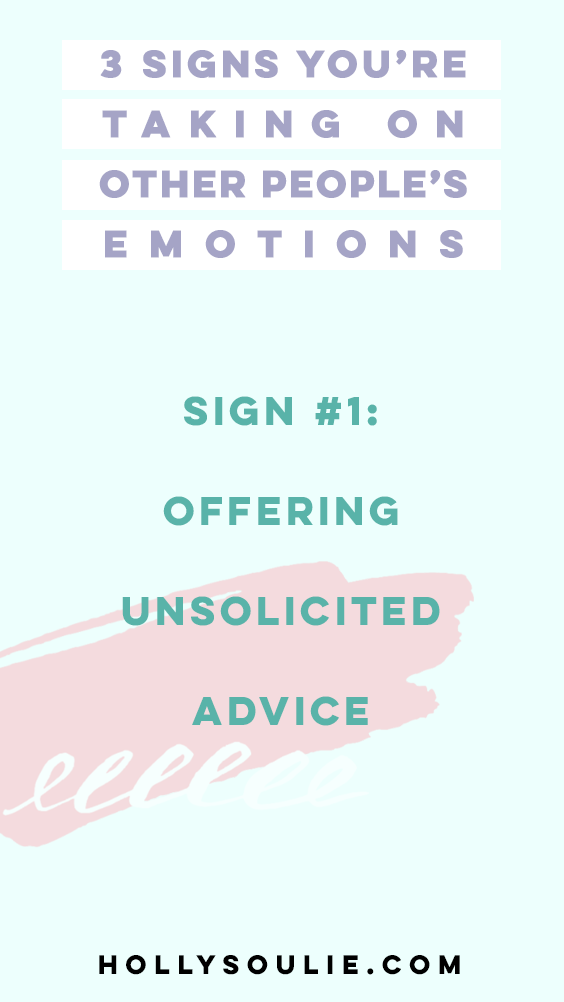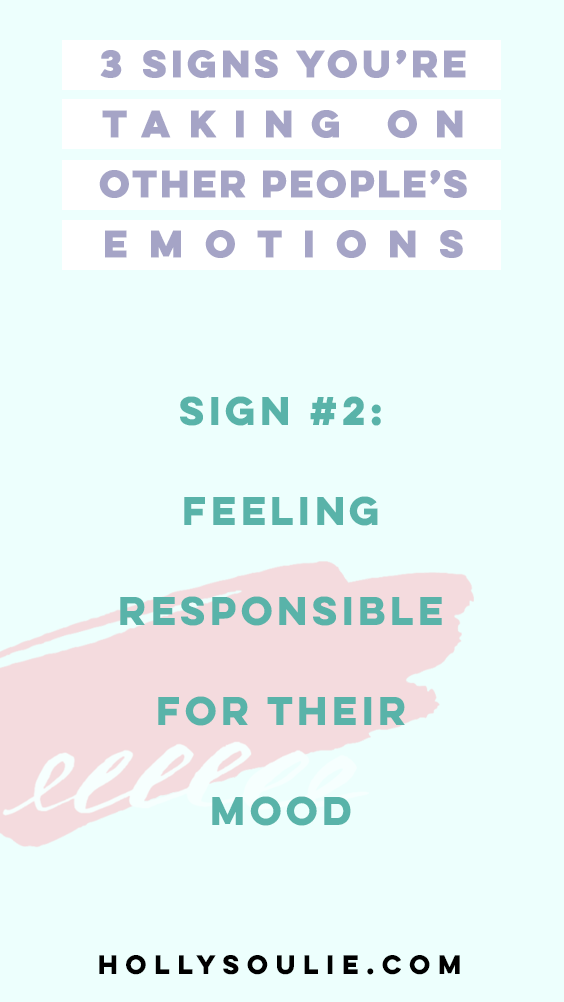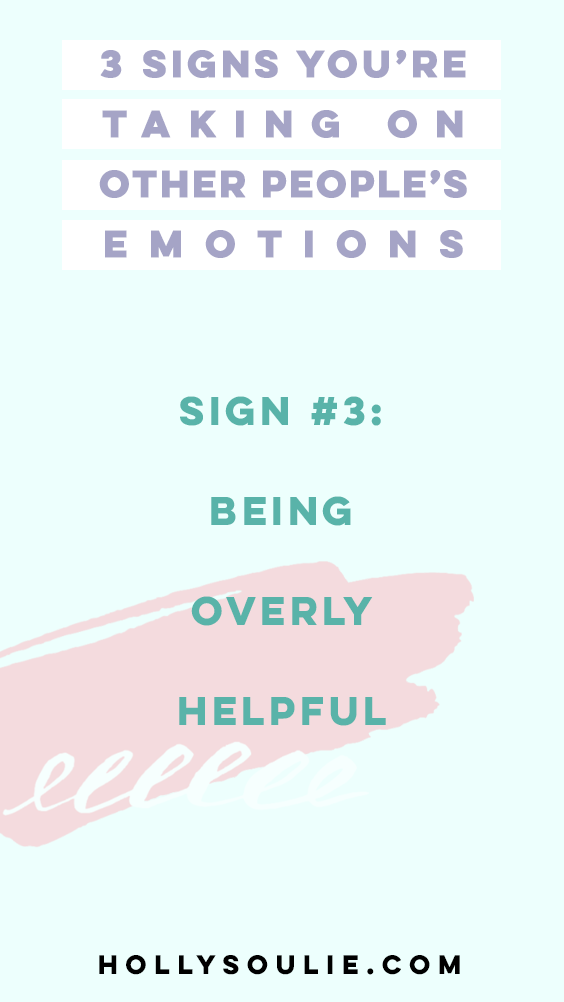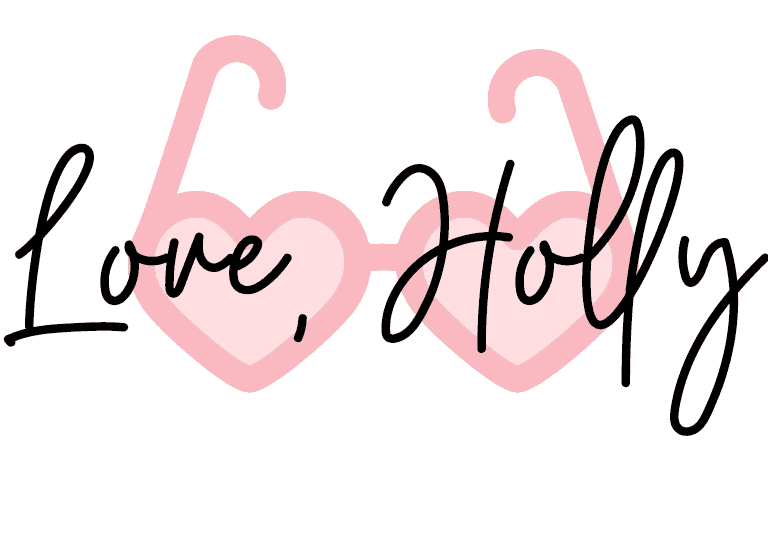3 Signs You’re Taking on Other People’s Emotions
Sharing is caring!
As someone who has felt responsible for other people’s emotions a lot, it can be hard to know when I’m even doing it! So, here are 3 signs youre taking on other peoples emotions.
3 Signs You’re Taking on Other People’s Emotions

To start off, I’ve spent most of my life feeling highly responsible for other people’s emotions. It’s how I was raised, so it feels natural to me to take care of everyone’s problems.
But as I unlearn my codependent habits, I feel so much freer.
On the other hand, because it’s so ingrained in me to be an emotional caretaker, sometimes it’s difficult to see when I’m actually doing it. So, if you’re in the same boat, here are 3 signs you’re taking on other people’s stuff too much.
Sign #1: Offering Unsolicited Advice

First of all, supporting other people is a good thing! And it’s nice to be there for others.
On the surface, giving unsolicited advice usually truly comes from a kind, helpful place. But if you’re giving advice when people don’t ask for it, it’s a sign you’re taking on their issues as your own. (source)
When you give advice without being asked for it, it can be a form of trying to control a situation that you feel you can’t control. (source)
Also, it might come from a place of needing to be needed. So, when you offer advice that wasn’t asked for, it could be your way of filling a need because YOU need to be needed. (source)
Ultimately, offering unsolicited advice is a codependent behavior. (source)
I wrote about how I healed my codependency here.
If giving unsolicited advice, it’s time for some introspection. Why do you feel the need to give unsolicited advice? What do you get from it?
When you free yourself from the burden of other people’s emotions, your own life will feel so much lighter!
Sign #2: Feeling Responsible for Their Mood

Another sign that you’re taking on other people’s emotions is when you feel highly affected by other people’s moods. (source)
For example, if your partner is in a bad mood and you feel compelled to do everything you can to make them feel better…even if it comes at your own expense. (source)
Personally, I hate when my husband is in a bad mood.
On the one hand, it’s because it’s hard to see someone I love in distress. But on the other hand, sometimes I let it bother me too much.
So, while I try to see if I can do anything to help him feel happier, sometimes I just have to accept that he has a right to have different moods and he’ll feel better soon.
While being a caring compassionate person is great, you can definitely overdo it. And sometimes, you just have to allow others to be in a bad mood even if it’s uncomfortable for you.
Another sign might be that you feel like you can’t concentrate on anything else until you help that person feel better. (source)
For instance, if you’re at work and your boss is in a horrible mood. Then you start thinking of all the things you might have done wrong to upset him or her.
It becomes a spiral where you can’t concentrate until your boss feels better.
If you feel out of control when other people have bad moods, it’s time to look at it! What makes you so nervous about it? Why isn’t it ok for you?
When you reflect, always turn the question back to YOU. Then you’ll get some helpful answers that will help you grow past the behavior.
Sign #3: Being Overly Helpful

Finally, when you’re overly helpful it’s possible that you’re taking on other people’s feelings.
If someone you care about has a problem and you feel compelled to fix it, then you might be overdoing it.
Furthermore, if you do so much as to fix the problem for them, you’re definitely going too far.
Some exceptions for this might be children or elderly parents. You know, people who truly can’t do things for themselves.
But if your friend is having a horrible dating life and you feel compelled to rewrite her entire Tinder profile, that might be too much. (source)
Sometimes people just need you to be there for them, to listen to their problems. We all want to know someone is there to love us.
But when you go overboard supporting someone, they might get the idea that you don’t think they can handle their own life.
Also, when you overdo being helpful, it’s the perfect way not to pay attention to your own feelings and emotions. (source)
For example, I remember spending my entire day organizing my friend’s laundry room. She didn’t ask me to do it, but I busied myself going through her things, getting rid of them and sorting through it all FOR her.
Honestly, I was distracting myself from my own pain. My dad had recently gotten out of prison and I had a lot of undealt with emotions.
But if I had spent more time with myself instead of doing projects for someone else, I would have been able to work through my issues and resolve my inner turmoil.
If being overly helpful is something you do, maybe it’s time to start paying attention to YOU! What’s going on in your heart? What do you get from being so helpful?
Taking on What’s Not Yours
As someone who likes to be kind and generous, sometimes it’s hard when I realize I’m doing too much. But it also doesn’t feel good to be weighed down by other people’s emotions. If you can relate, see where you might be taking on too much.
Have you ever taken on someone else’s emotions? Tell me in the comments!






““““““““““““““““`




I’m an emotional fluency educator, guiding you into a more harmonious relationship with your emotions so you can move through life with clarity and calm.
